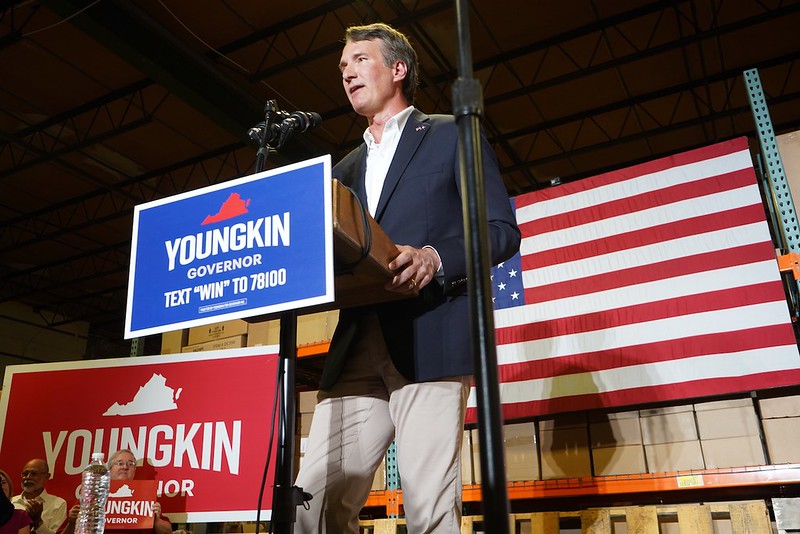
Virginia’s gubernatorial race might be the first chance to find out how some purple-ish states will swing after the 2020 presidential election. Less than a month away and closer in the polls than ever, the “toss up” race is drawing national attention.
Democratic candidate Terry McAuliffe served as Virginia’s governor from 2014 to 2018, and has played a role in Democratic politics as DNC Chairman and co-chairman of Bill Clinton’s re-election campaign. He seeks his second term as governor this year, as Virginia governors are barred from serving consecutive terms.
His opponent, Republican Glenn Youngkin, is seeking political office for the first time following a 25-year career at a private-equity firm in Washington, D.C. RealClearPolitics polling shows less than a three percent point margin between the two candidates, with the Nov. 2 finish line quickly approaching.
According to McAuliffe's website, his platform centers on education, “civil rights and voting rights,” protecting pro-choice policies and building a “clean energy economy.” Youngkin’s campaign focuses on restoring jobs across the state, “keeping communities safe” by fully funding law enforcement and cutting taxes for Virginians. Youngkin has gotten the COVID-19 vaccine and encourages others to do the same, but he opposes vaccine mandate. On the other hand, McAuliffe would require them for teachers, students and health care workers, and he would support business-imposed mandates for employees.
Virginia is one of two states – the other being New Jersey – that holds a gubernatorial election the year after a presidential election, uniquely positioning itself as a test of the country’s political stance prior to the upcoming midterm elections. This year, the race could serve as a referendum on “the Trump factor,” as the twice-impeached former president teases a second run in 2024.
McAuliffe's campaign has sought to align Youngkin with Trump in the eyes of voters. Youngkin, however, attempts to walk a middle line between Republicans who supported the former president and those who were less enchanted.
“Republican Glenn Youngkin needs Donald Trump,” read the first line of an Associated Press article, “He just doesn't want to say the name.”
President Joe Biden defeated Trump by 10 points in Virginia in 2020. One year later, why is this race so close? What makes it so consequential?
Northwestern political science professor Laurel Harbridge-Yong believes that this race indicates the increasing “nationalization of politics.”
"In the past, you might have thought that a gubernatorial campaign would rest on local issues," Harbridge-Yong said. "[But now] even gubernatorial races are run more on the national party platform, [and their results are] indicative of the broader political climate."
Extremism is the enemy of both campaigns, made clear by each camp’s effort to associate the other with the most radical end of their party.
"You have McAuliffe who is attempting to pitch this as a referendum on Trump and tie Youngkin to Trumpism," Harbridge-Yong said. "On the other hand, Youngkin is trying to paint McAuliffe as being no different than the most progressive members of the Democratic party."
For Harbridge-Yong, one thing is certain for both parties – in this race and the quickly-approaching midterms next fall, “The challenge is going to continue to be who gets the bigger tent and the bigger turnout.”
If you are a resident of Virginia, check your voter-registration status and request a mail-in ballot here.